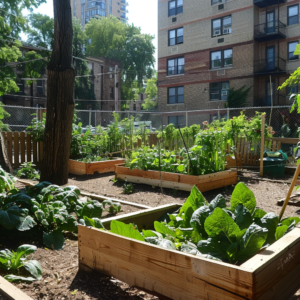
Essential Highlights
In a world where technology dominates our daily lives, it’s easy to forget the simple joys and profound benefits of spending time outdoors. For centuries, humans have found solace, inspiration, and rejuvenation in nature. Today, scientific research backs up what many have intuitively known for ages-nature is a powerful healer. In this article, we will explore how reconnecting with nature can holistically improve your physical health, reduce stress, and enhance your spiritual well-being.
One of the most immediate and tangible benefits of spending time in nature is its positive impact on physical health. Engaging in outdoor activities such as hiking, biking, or even a simple walk in the park can lead to significant health improvements.
Regular exposure to green spaces has been linked to better cardiovascular health. A study found that individuals who spent more time in nature had lower blood pressure and reduced risks of heart disease. The study attributes these benefits to the combination of physical activity and the stress-reducing qualities of natural environments.
Nature also plays a crucial role in boosting the immune system. Research showed that spending time in forests, known as “forest bathing” or Shinrin-yoku, can increase the production of natural killer cells, which are essential for fighting infections and cancer.
Engaging in outdoor activities encourages physical fitness in a way that indoor activities often do not. The varied terrain and changing scenery make exercises like hiking or trail running more engaging and less monotonous than gym workouts. This can lead to longer, more intense exercise sessions, thereby improving overall fitness levels.

The mental health benefits of spending time in nature are equally compelling. In an age where mental health issues are increasingly prevalent, nature offers a simple yet effective remedy.
One of the most well-documented benefits of nature therapy is its ability to reduce stress. A study found that participants who took 20-minute nature walks experienced a significant reduction in cortisol levels, the body’s primary stress hormone. This natural form of stress relief can be more effective and sustainable than pharmaceutical alternatives.
Exposure to natural environments has been shown to improve mood and emotional well-being. According to research, spending time in nature can increase feelings of happiness and decrease symptoms of depression and anxiety. The study suggests that the combination of physical activity, social interaction, and the inherent beauty of natural landscapes contributes to these positive effects.
Nature also has the power to enhance cognitive function. A study revealed that walking in natural settings, as opposed to urban environments, can improve memory and attention span. This boost in cognitive function can lead to better performance at work or school and a greater capacity to handle everyday challenges.

Beyond the physical and mental benefits, nature can also nourish the soul. Spending time outdoors can foster a sense of connection, peace, and purpose that is often missing in our fast-paced, technology-driven lives.
Nature has the unique ability to make us feel connected to something larger than ourselves. Whether it’s the awe-inspiring beauty of a mountain range or the tranquil stillness of a forest, these experiences can evoke a sense of wonder and interconnectedness. This spiritual connection can provide a sense of purpose and fulfillment that transcends everyday concerns.
Spending time in nature encourages mindfulness and presence. The sights, sounds, and smells of the natural world can draw our attention away from worries about the past or future and anchor us in the present moment. This state of mindfulness is associated with numerous benefits, including reduced stress, improved focus, and greater overall well-being.
Finally, nature can inspire gratitude. The simple act of observing a sunset, listening to birdsong, or feeling the warmth of the sun on your skin can remind us of the beauty and abundance that exists in the world. Practicing gratitude has been shown to improve mental health, enhance relationships, and increase overall life satisfaction.
To reap the holistic benefits of nature, it is essential to incorporate outdoor activities into your daily routine. Here are some practical tips to help you reconnect with nature:

Reconnecting with nature is more than just a leisurely activity; it is a holistic approach to improving physical, mental, and spiritual health. Whether it’s a daily walk in the park, a weekend hike, or a vacation in the mountains, spending time outdoors offers a multitude of benefits that can enhance your quality of life.
Ready to experience the holistic benefits of nature for yourself? Start by incorporating small outdoor activities into your routine and gradually explore more adventurous options.